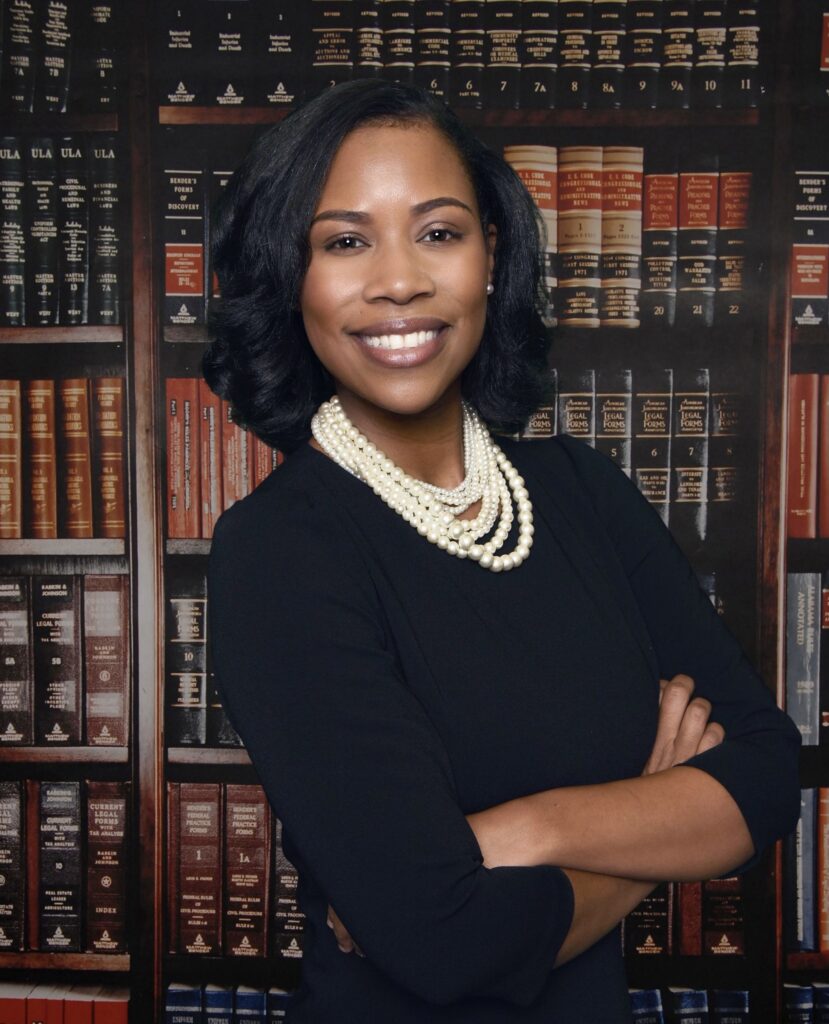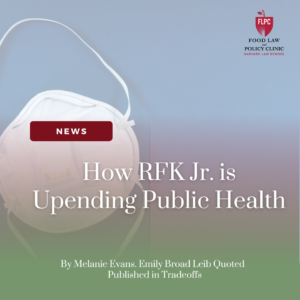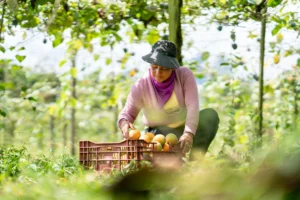April Love joined the Food Law and Policy Clinic in January 2024 as a Clinical Instructor. Prior to joining FLPC, she served as the Policy Analyst for the Socially Disadvantaged Farmers and Ranchers Policy Research Center at Alcorn State University (The Policy Center), where she led the development of equity-centered policy recommendations to ensure farmers of color are prioritized in legislation and programming. The CHLPI Communications Team caught up with April to learn a little more about her interest in food law and policy.

Q: What initially sparked your interest in food law and policy?
AL: I unexpectedly became interested in food law and policy during my junior year of college while taking a course called Policy, Politics, and the Political Process. This class was my first real exposure to the legislative space, sparking my curiosity about how policy shapes everyday lives. At the end of the semester, our professors took us to Duke, where we met with a PhD class in public policy. One dissertation on food deserts captured my attention, because of its focus on food access, equity, and policy. After law school, I found myself immersed in agricultural policy development, which led me to FLPC. I’m excited that my interests from college have come full circle with the work I’m doing now.
Q: What are you most excited to work on at FLPC?
AL: Overall I’m excited about everything related to FLPC, but I’m eager to jump into work that addresses systemic disparities in food access. I look forward to collaborating with students and stakeholders to tackle these challenges in the food system, and working to generate support for marginalized communities.
Q: How do you approach policy development with an equity focus?
AL: I approach equity-focused policy development by centering the lived experiences of those most impacted, ensuring their voices shape solutions. By combining community input with data, policies become both evidence-based and inclusive. For me, equity-driven policy development requires continuous learning, collaboration, and accountability in order to really dismantle systemic barriers.
Q: What role do you see education playing in advancing food justice?
AL: In my opinion education plays two roles in advancing food justice. Education plays a critical role in advancing food justice by empowering individuals and communities with the knowledge and tools to understand and address systemic inequities in the food system, and everything connected to it. Education also prepares future leaders—whether policymakers, lawyers, or community organizers—to create solutions that promote equity and sustainability. Both of these aspects go hand in hand to create the most change.
Q: What do you enjoy doing outside of work?
AL: I love traveling with friends and family! I enjoy exploring new places, experiencing different cultures, and going on adventures.


